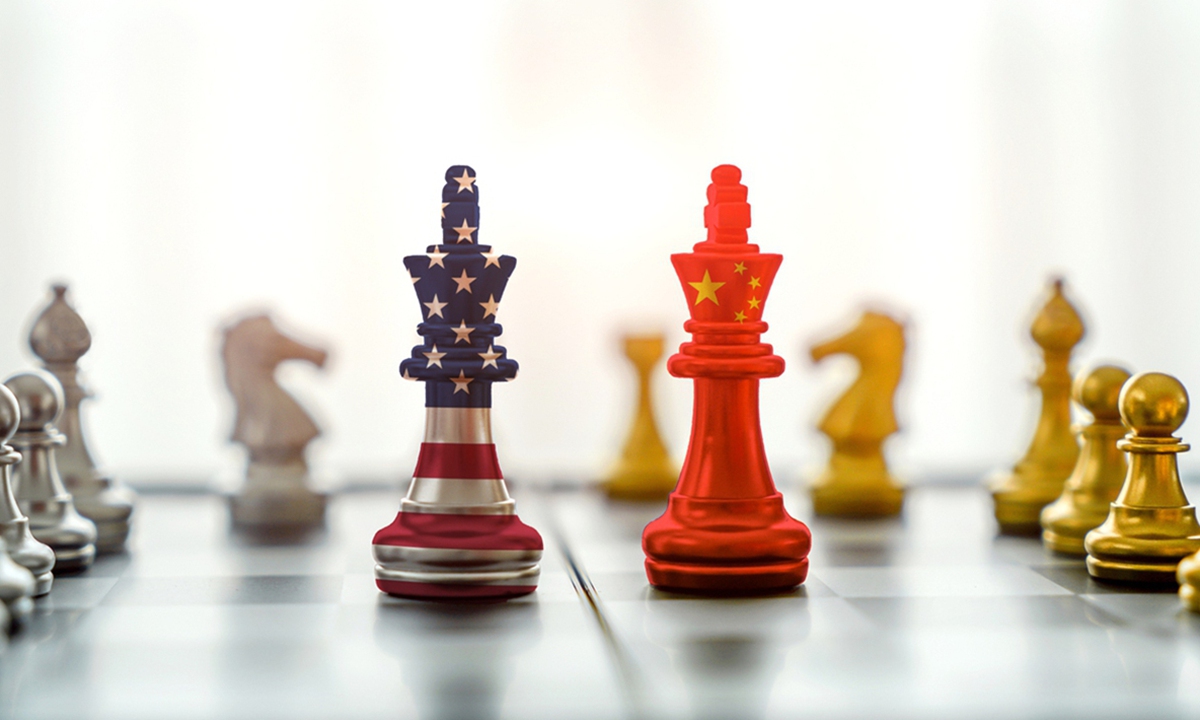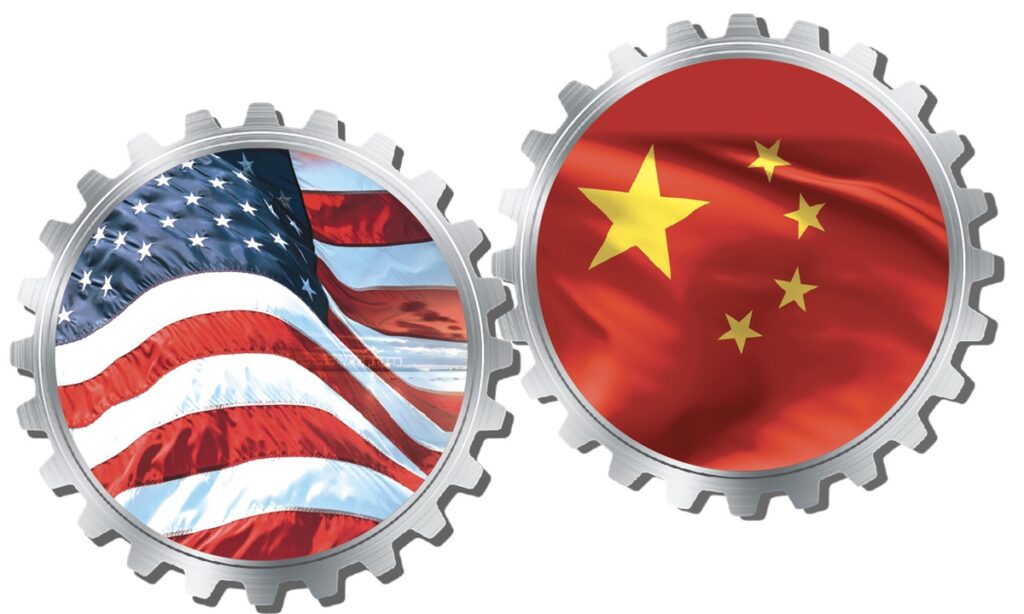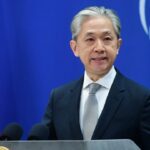China and the US are maintaining communication in different channels after a series of visits by cabinet members of President Joe Biden’s administration, as former US treasury secretary Henry Paulson, who represents the interests of Wall Street elites to some extent, met with senior Chinese officials during a trip to Beijing.
Chinese experts said on Wednesday that maintaining engagement does not mean a recovery of bilateral ties and cooperation, and warned that if the US really wants higher level exchanges with China, Washington should show more sincerity rather than adding more obstacles.
Chinese Vice President Han Zheng met Paulson in Beijing on Tuesday, saying China welcomes more US companies to invest and do business in China to share development opportunities, the Xinhua News Agency reported on Tuesday.
Wang Yi, a member of the Political Bureau of the Communist Party of China Central Committee and director of the Office of the Central Commission for Foreign Affairs, also met with a delegation led by Paulson on the same day.
During the dialogue with Paulson, Chinese officials repeatedly expressed the country’s sincere stance about how to deal with the US and how China will welcome US companies to invest and do business in China, but that a successful recovery in bilateral ties requires more sincerity from the US. If Biden wants higher level talks with China later this year, his administration should make the effort to create the conditions not only economically, but also politically, experts said.
Showing confidence
Han said during the meeting with Paulson that China always follows the guiding principles of mutual respect, peaceful coexistence and win-win cooperation in dealing with relations with the US. It is hoped that the US side can work with China to bring bilateral ties back to the track of sound and steady growth.
Since the beginning of this year, China’s economy has kept to a general rebound track. The Chinese side will continue to optimize economic structures, deepen reform and opening-up, and achieve high-quality development, Han said.
“We welcome more US companies to invest and do business in China to share development opportunities together,” Han added.
Some US officials and media have bad-mouthed the Chinese economy recently, and some of them once again are trying to stigmatize China’s market and the Chinese government’s attitude on opening-up, adopting scare tactics to warn US companies off China to serve their purposes of “decoupling with China.” The remarks by the Chinese vice president are yet more proof that attempts to further poison China-US ties are doomed to fail, as they are against the facts, as well as the will for cooperation among the two countries, experts noted.
For his part, Paulson said he has confidence in the prospects of China’s economic development, and US-China relations have an important impact on the world. The two countries should maintain communication and dialogue, strengthen people-to-people exchanges and economic and trade cooperation, and jointly cope with global challenges such as climate change.
Paulson also expressed willingness to continue playing a positive role in promoting the steady development of US-China relations.
Many US media have high expectations of a possible China-US summit later this year on the sidelines of the APEC Economic Leaders’ Meeting which will be held in San Francisco in November.
Wang, who is also Chinese Foreign Minister, said on Tuesday that “the APEC meeting is supposed to be a stage for promoting cooperation, instead of a wrestling ground for provoking confrontations.”
As the largest developing country and an important member of APEC, China is willing to play a constructive role in the success of this year’s APEC meeting, said the foreign minister at a press conference on Tuesday to discuss a new white paper titled “A Global Community of Shared Future: China’s Proposals and Actions.”
Diao Daming, a professor at Renmin University of China in Beijing, told the Global Times on Wednesday that “as a responsible major power, China expressed a positive will, so the US should show its sincerity too. The US, at this moment, is still creating obstacles, not conditions for a higher level of communication with China, and these obstacles should be removed.”

China US
More sincerity needed
Wang said at his meeting with Paulson that the nosedive in China-US relations does not meet the interests of the two peoples, the expectations of the international community or the trend of the times. It is hoped that the US will return to the rational and pragmatic track in its China policy, take concrete actions to lengthen the positive list and shorten the negative list, and work with China to explore ways of peaceful coexistence as two major countries.
Paulson welcomed the recent resumption and maintenance of dialogue between the US and China, adding that the two sides should indeed find the right way to get along with each other, build mutual trust, and push for the steady improvement of US-China relations.
Lü Xiang, an expert on US studies and a research fellow at the Chinese Academy of Social Sciences, told the Global Times on Wednesday that Paulson is a US political and financial figure who witnessed China-US cooperation during the global financial crisis in 2008, so he clearly understands the importance of China-US interdependency.
Paulson, to some extent, represents the interests of pragmatic and reasonable Wall Street elites who are disappointed and dissatisfied with the Biden administration’s handling of ties with China, but to what extent he could exert a positive impact to ease tensions is in question, Lü noted.
Separately, China and the US announced the establishment of two working groups in the economic field, China’s Ministry of Finance (MOF) announced Friday, according to Xinhua.
The working groups will cover economic and financial sectors. The economic working group will be co-chaired by vice-ministerial officials from the MOF and the US treasury department. The financial working group will be co-chaired by vice-ministerial officials from the People’s Bank of China and the US Department of the Treasury.
Lü said this outcome is positive for maintaining and resuming communication, but it is still far from cooperation. It reveals that the US Treasury needs cooperation more desperately, especially amid US government debt woes, but US commerce authorities still show no sincerity while they continue to pile on more obstacles.
According to Reuters on Monday, the US Commerce Department, which oversees export policy, imposed new trade restrictions on 11 Chinese and five Russian companies, accusing “some of supplying components to make drones for Russia’s war effort in Ukraine.”
Diao said when dealing with other countries, the US only cares about its own interests, and shows no respect for other countries’ interests and concerns. The US should correct its mistakes and meet China halfway, which is the only way bilateral ties can be stabilized and recovered.
“We hope the Biden administration will take concrete steps to reach agreements with China before everything gets more complicated in the year of US presidential elections,” Lü said.
(Global Times)




